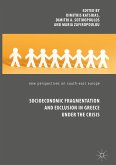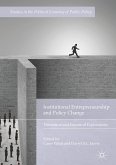- Quinn Slobodian, Professor of International History, Boston University
Ausserladscheider challenges one entrenched dichotomy only to shatter another....Her pathbreaking book invites us to recognize that rather than anti-elitist rebels railing against neoliberalism, Austria's far-right populists represent a national-populist, exclusionary mutation of neoliberalism-an insight that resonates widely across the democratic world. This exemplary analysis should be on the reading list of everyone working on right-wing populism.
- Gabor Scheiring, Assistant Professor of Comparative Politics, Georgetown University Qatar
This book examines the rise of exclusionary neoliberalism by assessing how far-right populist actors impact economic policy change. Drawing on the case of the Austrian Freedom Party, the book illustrates how neoliberalism emerged as a far-right political project in Austria. Tracing the Freedom Party¿s ideational history, the book describes the making of the exclusionary neoliberal state through its establishment in the 1980s, its implementation in the early 2000s and how exclusionary neoliberalism was sustained after the Great Financial Crisis of 2008. The book thereby provides important insights on how domestic politics respond to challenges imposed by globalization and international market integration, and explains the less obvious ways in which exclusionary nationalist ideas can be deeply entangled with neoliberalism. The book will appeal to all those interested in far-right populism and its interrelation with political economy.
Valentina Ausserladscheider is a postdoctoral researcher at the Department of Economic Sociology, University of Vienna. She holds a PhD from the University of Cambridge. Her research lies at the intersection between international political economy and economic sociology and focuses on institutional change, discourse, ideas, and the political constitution of the economy.
Dieser Download kann aus rechtlichen Gründen nur mit Rechnungsadresse in A, B, BG, CY, CZ, D, DK, EW, E, FIN, F, GR, HR, H, IRL, I, LT, L, LR, M, NL, PL, P, R, S, SLO, SK ausgeliefert werden.









